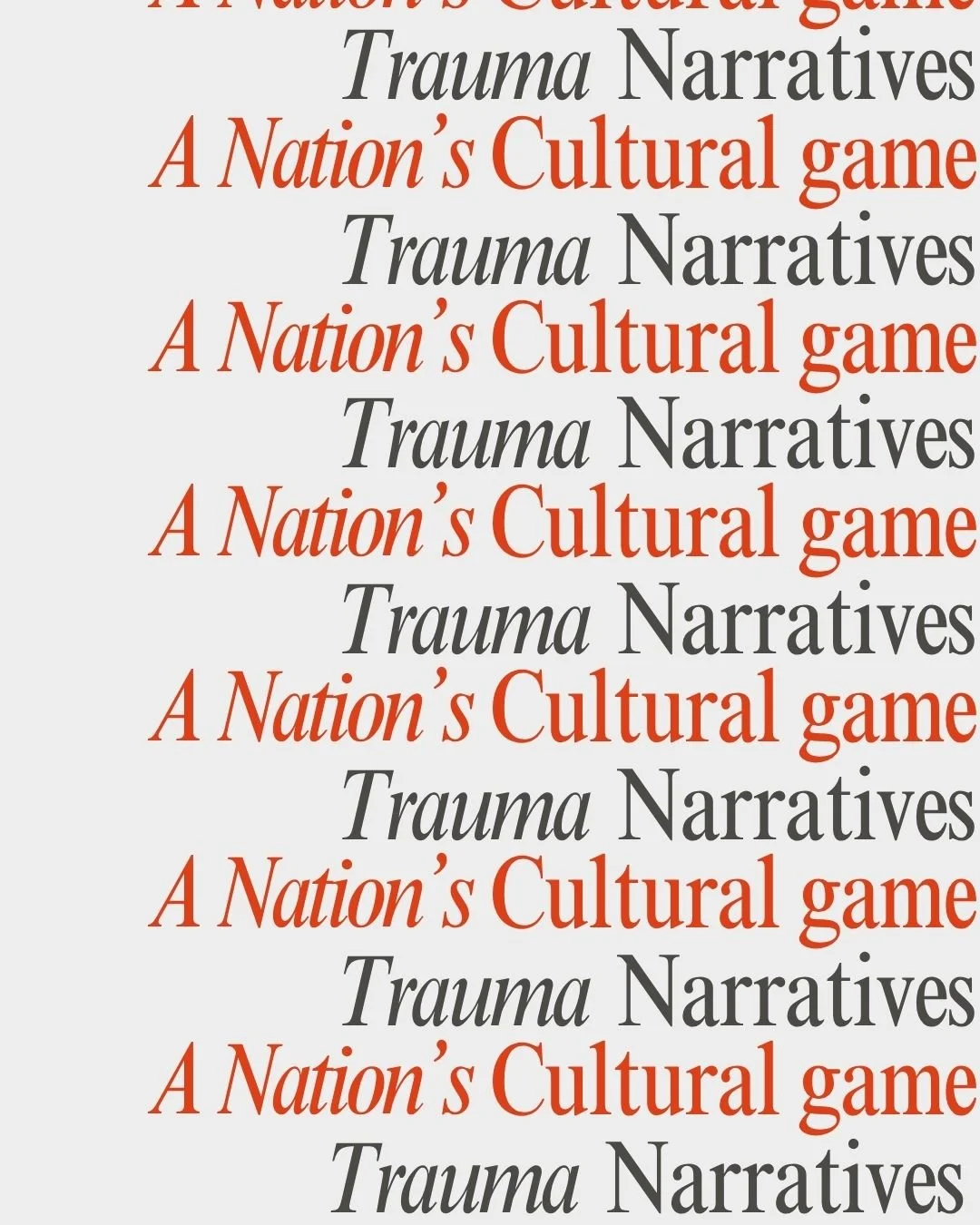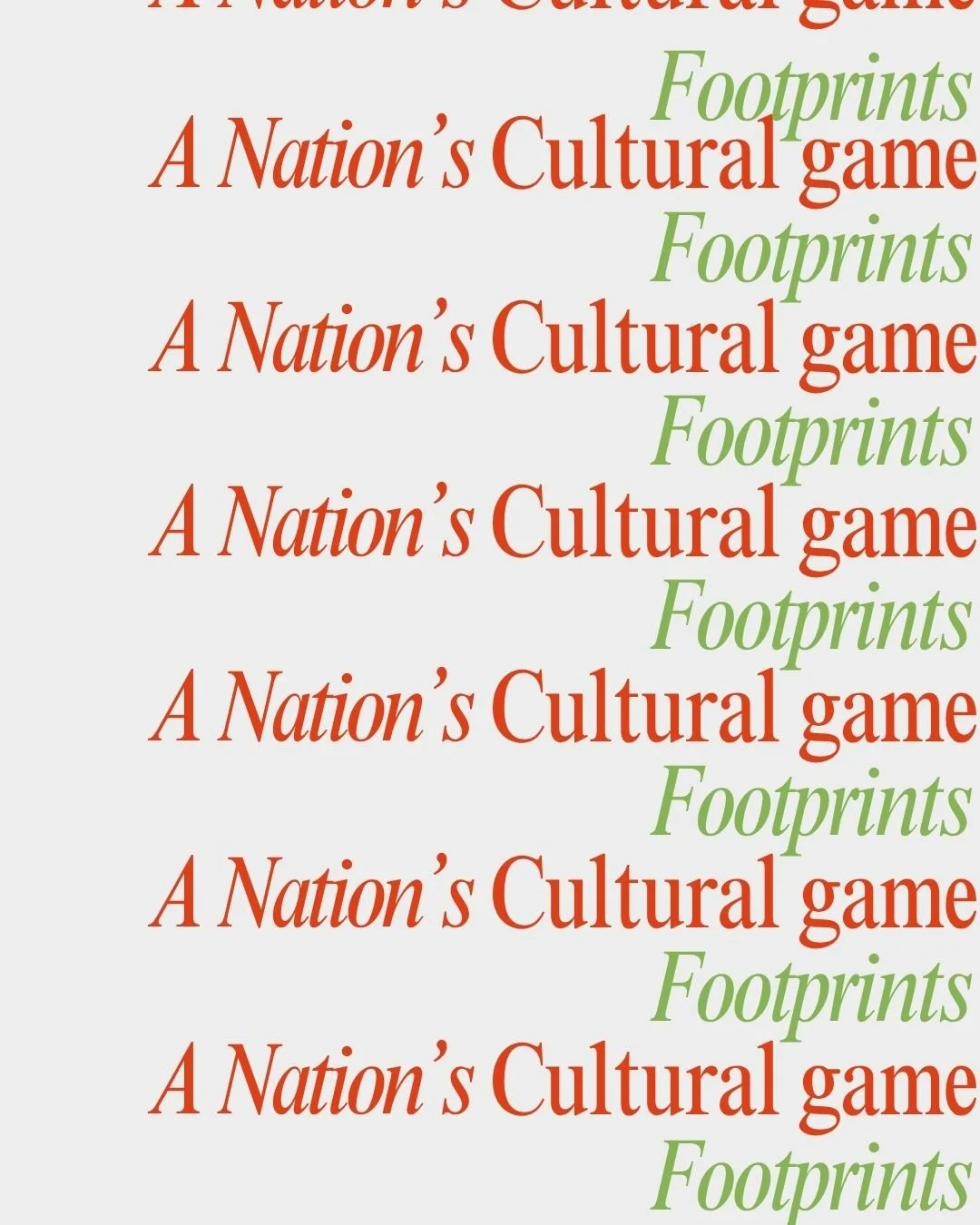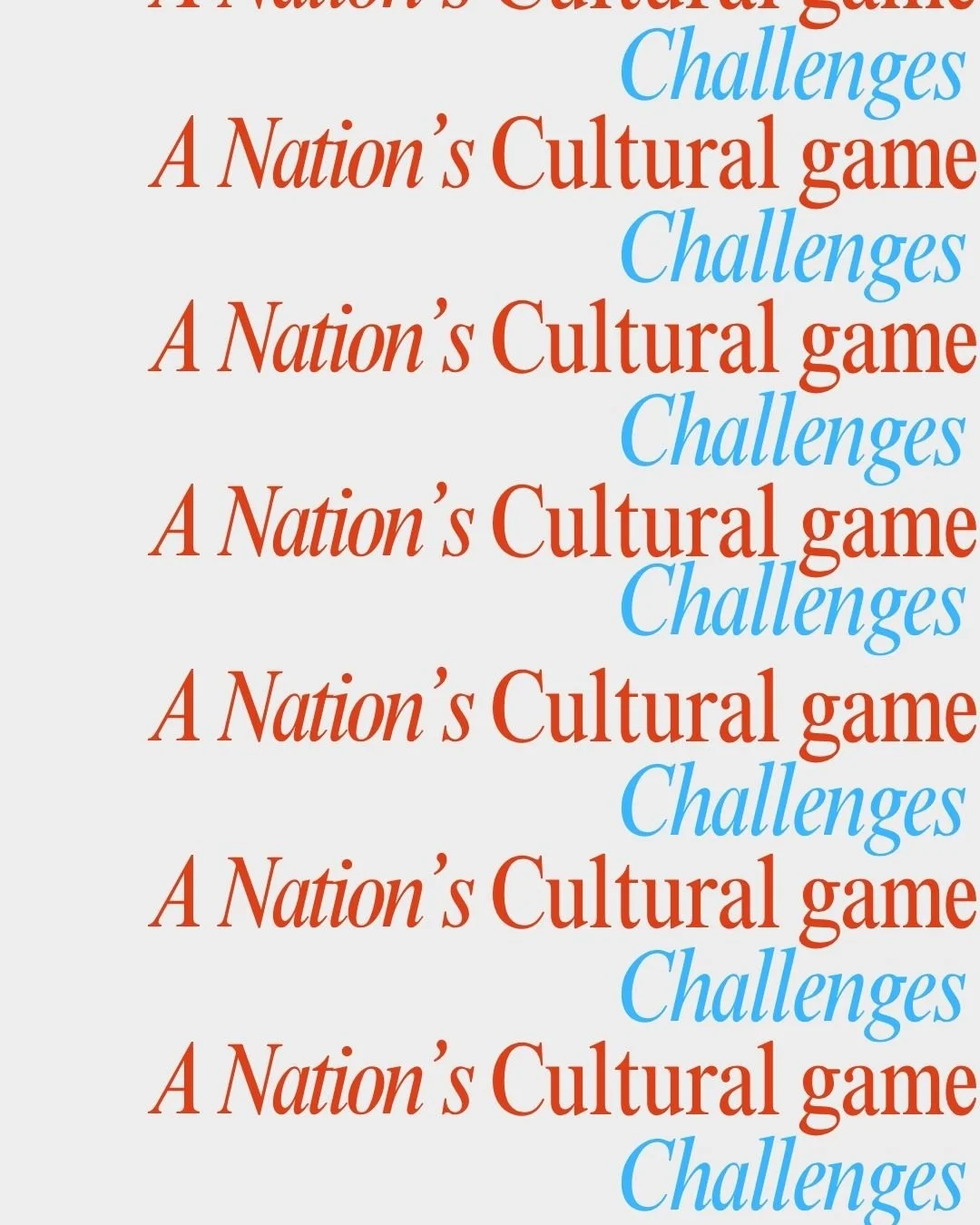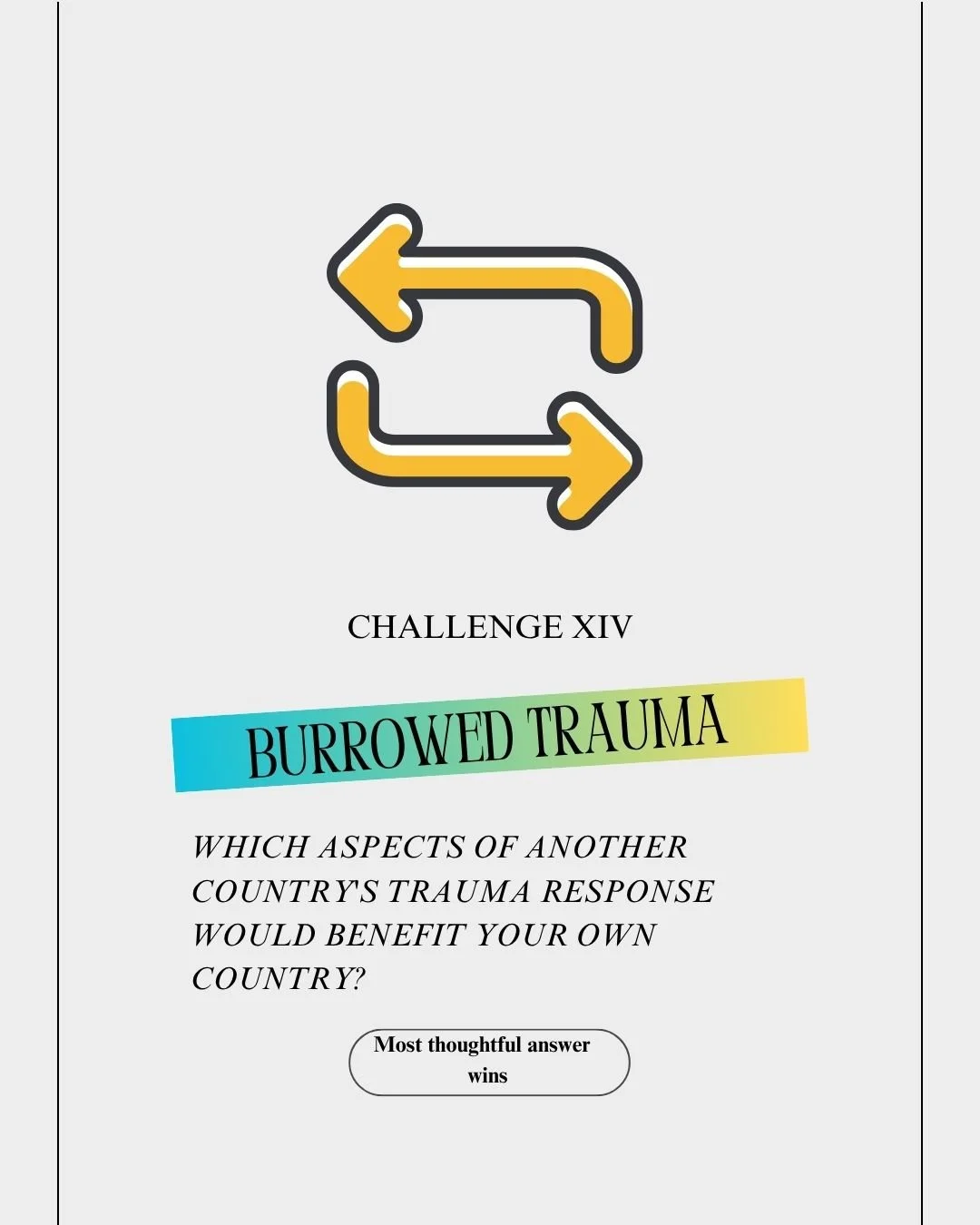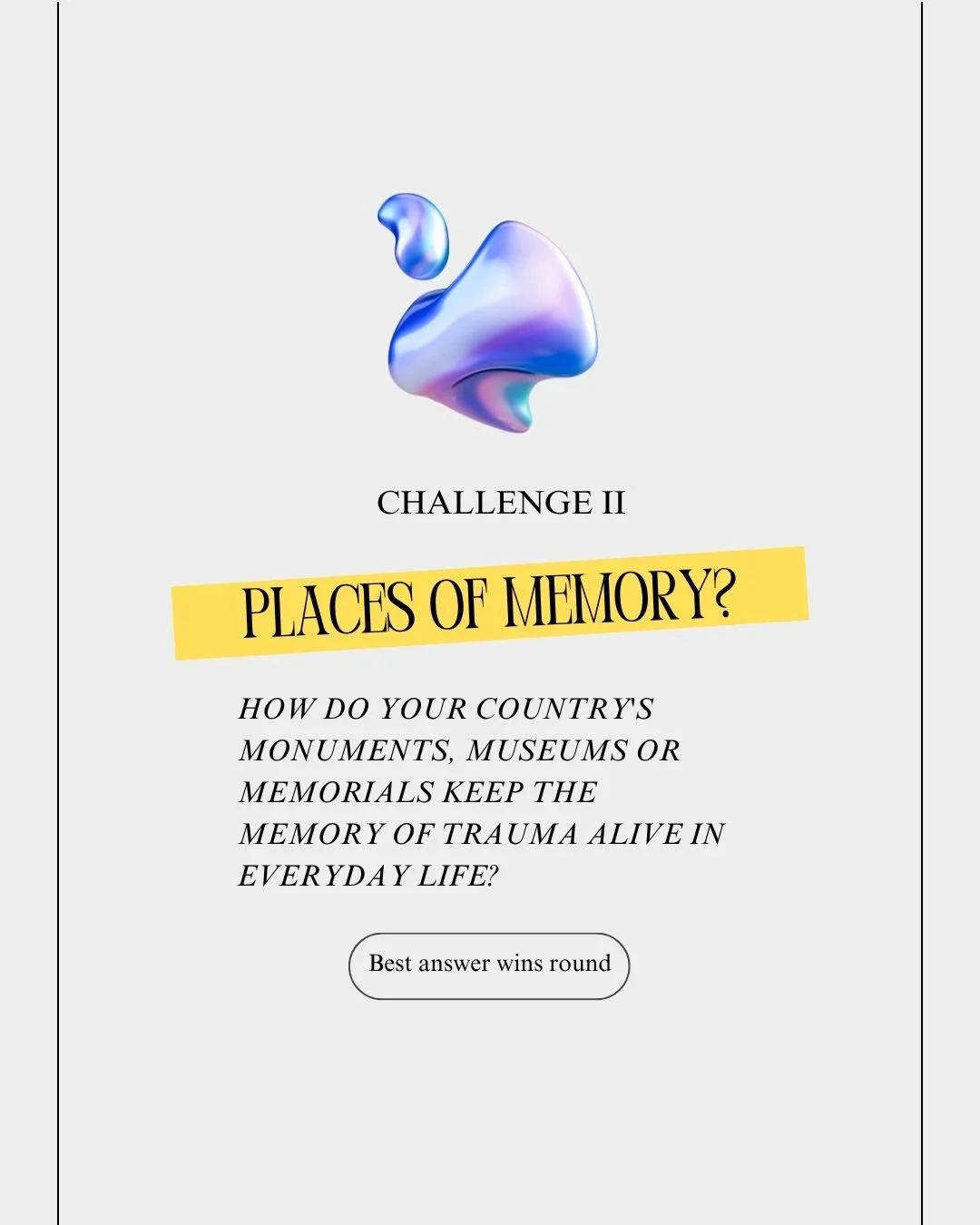How to Play:
National Trauma Game
Game Setup
Each player receives a Country Card (Israel, Palestine, France, Germany, or USA)
Shuffle the National Footprint Cards and place 5-7 face-up in the center
Each player gets access to AI research tools on their device
Round Structure
Phase 1: Research & Preparation
When players receive their Country Card, they use AI to research their assigned nation's trauma narrative:
AI Research Prompts for Players:
"What was the founding trauma of [country]? How is it remembered today?"
"How does [country] commemorate its historical trauma through holidays, monuments, or rituals?"
"What groups control the narrative about [country]'s traumatic history?"
"How has [country]'s trauma influenced its constitution or legal system?"
Phase 2: Claiming Cards
Players take turns claiming National Footprint Cards they believe connect to their country's trauma response
When claiming a card, players must explain the connection using both their research and reasoning
Other players can challenge claims, leading to mini-debates
Phase 3: Challenge Round
A Challenge Card is drawn asking questions like:
"Who tells the story?" - Explain which groups shape your country's trauma narrative
"What's the cost?" - Describe negative consequences of your country's trauma response
"How do you remember?" - Detail specific rituals, monuments, or practices
AI Integration for Challenge Rounds: Players can use AI for real-time fact-checking and deeper analysis:
"Help me analyze how [specific group] influences [country]'s historical narrative"
"What are counterarguments to the dominant story about [event] in [country]?"
"Compare how [country A] and [country B] remember similar types of trauma"
Phase 4: Reflection & Scoring
Players vote on most insightful explanations
Group discusses patterns and differences across countries
AI can help generate reflection questions: "What surprised you about how different countries handle similar traumas?"
AI as Learning Partner
During Gameplay:
Players use AI to verify historical facts and explore multiple perspectives
AI helps generate thoughtful questions about complex issues
Players can ask AI to help them understand opposing viewpoints
Example AI Interactions:
"I'm playing Germany. Help me understand how Holocaust memory shapes current immigration policy"
"As Palestine, how can I explain the role of diaspora communities in maintaining trauma narrative?"
"Playing France - what's the connection between colonial trauma and current secularism laws?"
This integration transforms AI from a simple information source into a collaborative thinking partner that enhances rather than replaces critical analysis, perfectly embodying the cyborg classroom philosophy of human-AI collaboration in learning. The game also enables information triangulation as players research the same events from different national perspectives, while role-playing different national identities creates opportunities for embodied understanding of diverse viewpoints.
With more players—whether individuals or groups representing different countries—we multiply perspectives and create richer opportunities for dialogue, learning, and mutual understanding. The game becomes a space where participants can recognize both similarities in how nations process trauma and differences in their responses, fostering the kind of nuanced thinking essential for navigating our interconnected yet divided world. Each additional voice adds layers of complexity that prevent oversimplification while building capacity for generous interpretation across difference.
based on :
Alexander, J. C. (2004). Toward a Theory of Cultural Trauma. In J. C. Alexander, R. Eyerman, B. Giesen, N. J. Smelser, & P. Sztompka (Eds.), Cultural Trauma and Collective Identity (pp. 1–30). University of California Press.
Yair, Gad, (2023). "Trauma and constitution: Precursors of political traditions and collective identities," European Journal of Cultural and Political Sociology, Col. 11(1): 44-66. https://doi.org/10.1080/23254823.2023.2219334
Play with us.
Want to experience the National Trauma Game with physical cards? We're organizing game sessions as part of our ethnographic research on learning through play.
What this means:
You'll play our card game exploring how nations construct identity through trauma
Your experience becomes part of our research
We'll document insights about how games create spaces for complex conversations
All participation is voluntary and you can withdraw at any time
What you get:
Hands-on experience with these theoretical concepts
Opportunity to engage with difficult topics in a supportive environment
Contribution to innovative research on education and play
Interested in being part of this experiment in cyborg classroom learning? Let us know!
